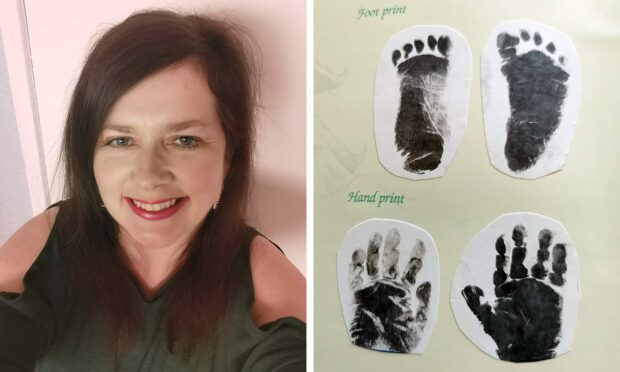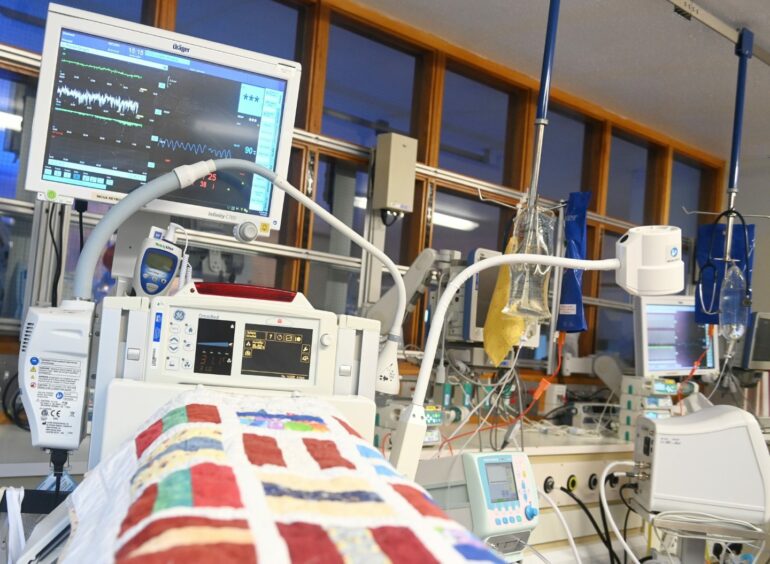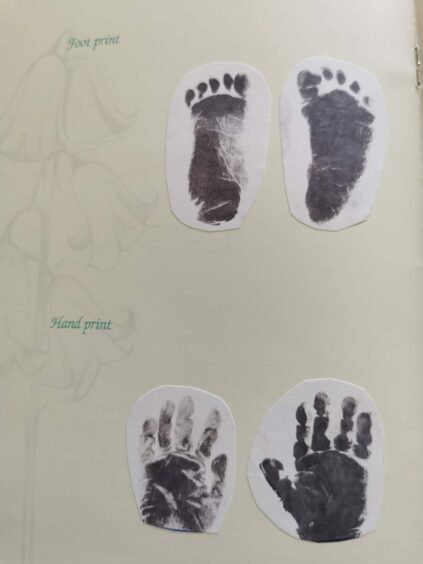When George James Sinclair was delivered stillborn at Aberdeen Maternity Hospital on August 29, 2012, hospital staff carefully washed and clothed his dead body.
He was then handed back to his mother Helen-Louise, who together with husband Ross spent the next 24 hours holding him.
The procedure is common in birth centres after stillbirths because it allows parents to say farewell and start the grieving process.
For Helen-Louise, it was a day she will remember for the rest of her life.
“I didn’t sleep much that night – I just kept staring at him,” she says.
“Ross and I were talking away to him about how we were just so heartbroken, and that we will always love him.”
‘The memories will never go’
More than a decade on, the grief of that day still weighs heavily on Helen-Louise, 44.
In 2013, she gave birth to Rebekah, a healthy, vivacious girl who is now a thriving 10-year-old.
But she thinks about George every day and always marks his birthdays and other landmarks with a single candle lit at the exact time of his birth.
The grief may get easier over the years but the loss is a wound that can never properly heal.
“All the memories,” Helen-Louise says, “they’ll never go. They’re always there.”
Helen-Louise now helps other couples process the loss of their children in pregnancy, using her experience as a guide.
She is a volunteer counsellor for the Aberdeen branch of the Stillbirth and Neonatal Death charity group and support network (SANDS).
In September, Aberdeen SANDS is the host of the Scotland-wide SANDS community day, a free event open to anyone interested in learning more about the stillbirth charity’s work.
It follows a SANDS awareness month across June that this year focussed on the importance of community involvement in supporting parents who have lost children to stillbirth.
The Aberdeen group helping mums and dads face stillbirth pain
SANDS was there for Helen-Louise when she lost George at 29 weeks and five days into a pregnancy that until she started bleeding dangerously had been routine.
She vividly remembers the confusion and panic as well as the sense that this – the unimaginable horror of losing her child – could not be real.
So when she sits down to talk with parents living through their own nightmare, she knows exactly what they are going through.
The process is therapeutic for herself as well, and it allows her to talk about George – her way of keeping his memory alive.
It does, however, come at a cost.
“I cry, even after I hear someone else’s story, for the first time, I sit there in tears as well,” Helen-Louise says. “I remember it happening to me, so you understand what the other person will go through.”
The final farewells to George
Helen-Louise was able to say goodbye to George twice – once when she left the maternity ward and again at the hospital-organised funeral.
She put a card into the coffin beside his body, while husband Ross also placed memories such as a photo of his parents’ dog, which George would surely have loved to play with.
Meanwhile, the hospital took prints of George’s tiny hands and feet and gave them to Helen-Louise to keep.
Rebekah was born on June 25 2013, less than a year after George’s death. She has grown up knowing all about her older brother and every year helps her mum blow out the birthday candles on George’s cake.
However, her birth was also fraught with drama.
Because of what happened with George, Helen-Louise went for scans twice a week while carrying Rebekah.
About five weeks out from full term, medical staff discovered the baby had stopped growing.
“The same kind of thing was kind of happening again,” Helen-Louise says. “So we got her out a week before I was supposed to be induced.”
Memories of George what he would have become
Rebekah turned 10 this month and according to her mother is doing fine. But Helen-Louise will always remember George.
“You always wonder what he’d be into,” she says of the boy who this year would have turned 12. “Would he be out with his friends? Getting up to no good, probably.
She laughs at the thought.
“Just a typical boy,” she says.



